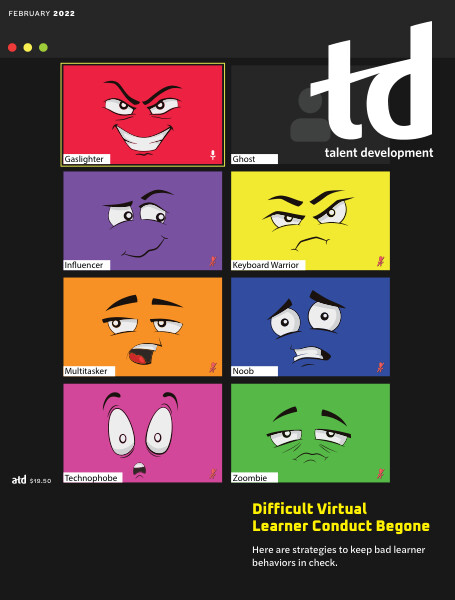TD Magazine Article
Member Benefit
Hear Me Out
Listening contributes to inclusive work cultures.
HY
By
Mon Jan 31 2022

Loading...
Today's employees are less connected to their employers than ever before. With an increasing number of organizations resorting to recruiting and onboarding employees entirely online, many new hires have yet to meet their colleagues in person. Meanwhile, long-serving employees working from home are at risk of feeling isolated from their co-workers and undervalued by their employers.
You've Reached ATD Member-only Content
Become an ATD member to continue
Already a member?Sign In

